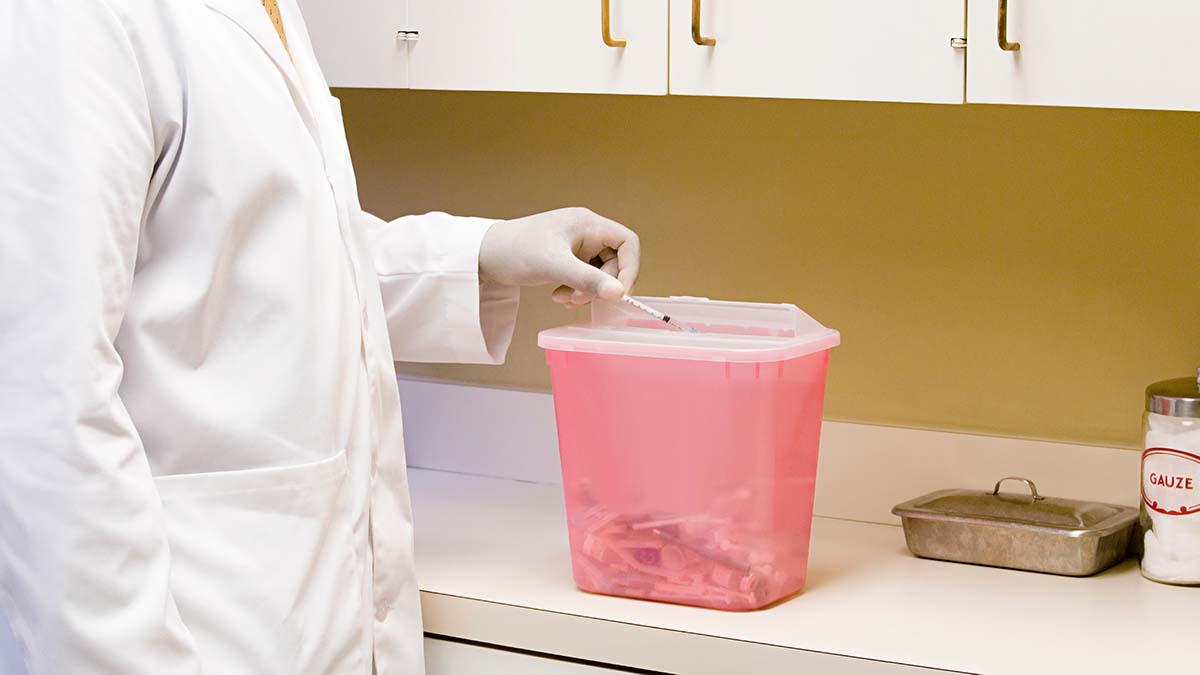Key points
- The delivery of health care has the potential to transmit hepatitis B virus (HBV) and hepatitis C virus (HCV) to both health care workers and patients.
- Health care workers should be vaccinated against hepatitis B.
- Health care workers should be tested for hepatitis C after a potential exposure.

Risks
Outbreaks of HBV and HCV infection have occurred in outpatient settings, hemodialysis units, long-term care facilities, and hospitals. These outbreaks primarily occur because of unsafe injection practices, such as reuse of needles, fingerstick devices, and syringes, and other lapses in infection control.
To prevent transmission in hospitals, clinics, and health care facilities, all staff members should be aware of and follow standard precautions and fundamental infection-control principles, including safe injection practices and appropriate aseptic techniques.
Preventing viral hepatitis
For hepatitis B, CDC and the Advisory Committee on Immunization Practices (ACIP) recommend clinicians, other health care workers, and public safety workers with reasonably anticipated risk for exposure receive the complete hepatitis B vaccine series and have their immunity documented through post-vaccination testing.
For hepatitis C, clinicians and other health care workers should be tested after potential exposure. In the case of a positive test result, antiviral medications should be provided to treat the HCV infection.
Resources
These resources provide further guidance and information on viral hepatitis transmission and prevention in health care settings.
Infection control
- Infection Control in Health Care Personnel: Infrastructure and Routine Practices for Occupational Infection Prevention and Control Services
- This CDC resource outlines infection control protocol.
- This CDC resource outlines infection control protocol.
- Guidelines for Environmental Infection Control in Health Care Facilities
- This MMWR provides recommendations for infection control in health care settings.
- This MMWR provides recommendations for infection control in health care settings.
- Injection Safety
- This CDC resource outlines safe injection practices.
- This CDC resource outlines safe injection practices.
Occupational health
- Prevention of Hepatitis B Virus Infection in the United States: Recommendations of the ACIP
- This MMWR provides ACIP recommendations for hepatitis B prevention.
- This MMWR provides ACIP recommendations for hepatitis B prevention.
- Guidance for Evaluating Health-Care Personnel for Hepatitis B Virus Protection and for Administering Post-Exposure Management
- This MMWR provides recommendations for HBV prevention and post-exposure management in health care settings.
- This MMWR provides recommendations for HBV prevention and post-exposure management in health care settings.
- Testing and Clinical Management of Health Care Personnel Potentially Exposed to Hepatitis C Virus — CDC Guidance, United States, 2020
- This MMWR provides recommendations following potential hepatitis C exposure in health care settings.
- This MMWR provides recommendations following potential hepatitis C exposure in health care settings.
- CDC Recommendations for Hepatitis C Screening Among Adults — United States, 2020
- This MMWR provides recommendations for hepatitis C screening among adults.
- This MMWR provides recommendations for hepatitis C screening among adults.
- National Clinicians Post-Exposure Prophylaxis Hotline
- This hotline provides clinicians with 24-hour guidance on managing occupational exposures to human immunodeficiency virus (HIV), viral hepatitis, and other bloodborne pathogens at 1-888-448-4911.
- This hotline provides clinicians with 24-hour guidance on managing occupational exposures to human immunodeficiency virus (HIV), viral hepatitis, and other bloodborne pathogens at 1-888-448-4911.
- Bloodborne Infectious Diseases: HIV/AIDS, Hepatitis B Virus, and Hepatitis C Virus
- This resource provides bloodborne infectious disease recommendations from CDC’s National Institute for Occupational Safety and Health.
- This resource provides bloodborne infectious disease recommendations from CDC’s National Institute for Occupational Safety and Health.
Vaccination
- Universal Hepatitis B Vaccination in Adults Aged 19–59 Years: Updated Recommendations of the ACIP
- This MMWR provides ACIP’s hepatitis B vaccine guidelines.
- This MMWR provides ACIP’s hepatitis B vaccine guidelines.
- Prevention of Hepatitis B Virus Infection in the United States: Recommendations of the ACIP
- This MMWR provides recommendations for hepatitis B prevention.
- This MMWR provides recommendations for hepatitis B prevention.
- Menu of State Health Care Facility Hepatitis B Vaccination Laws
- This CDC resource outlines state laws governing hepatitis B vaccination.
- This CDC resource outlines state laws governing hepatitis B vaccination.
